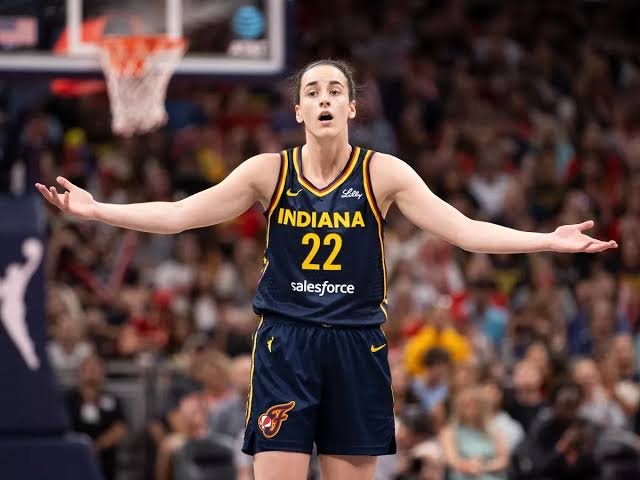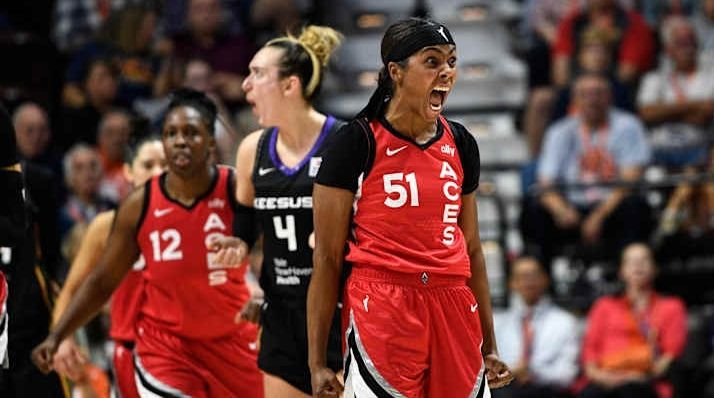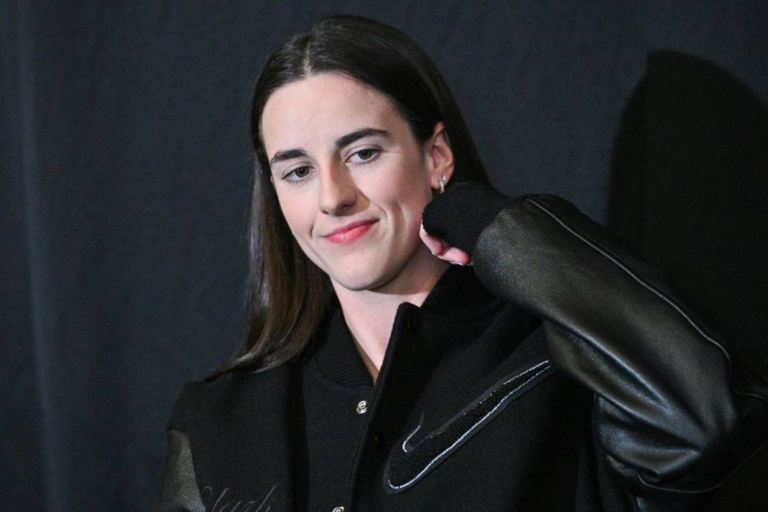
WNBA star Jonquel Jones has responded to rumors claiming that Caitlin Clark, the Indiana Fever’s rookie sensation, was the subject of a deliberate league-wide effort to target her on the court. Clark, who made a huge impact during her first season, quickly became the centerpiece of the Fever’s roster and was credited with helping raise the WNBA’s profile. Despite her success, some fans believed that opposing teams were getting excessively physical with the young guard, potentially out of a sense of rivalry or jealousy over her meteoric rise.
Jonquel Jones, who was named WNBA Finals MVP after leading the New York Liberty to the championship, firmly rejected these claims. On the Kickin It With Dee podcast, Jones expressed that she found the rumors awkward and unnecessary, clarifying that there was no coordinated effort to “bully” Clark. “It wasn’t about attacking her personally,” Jones explained, emphasizing that the increased defensive pressure Clark faced was simply part of the competitive nature of professional basketball. According to Jones, all players in the league are simply focused on doing their jobs and competing hard every game.
Jones elaborated that, while Clark may have faced tough play from opponents, it should not be seen as personal or malicious. “The best sign of respect you can get from an opponent is them playing you hard,” she noted, further reinforcing that the physicality on the court is a standard part of the sport and not an indication of a vendetta. She also pointed out that some of the narratives being pushed on social media were not reflective of the reality of the games, suggesting that fans and commentators may have misinterpreted competitive play as something more sinister.
While the allegations of a targeted campaign against Clark have circulated, Jones is not the only one to dismiss them. WNBA Commissioner Cathy Engelbert also weighed in after Clark’s outstanding 30-point performance in June against the Washington Mystics, praising her as a force on the court rather than a player being unfairly treated by rivals.
In the end, both Jones and Engelbert have expressed that Clark’s success is a testament to her skill and the increasing competitiveness of the league, rather than a result of any ill will from other players. The notion that Clark’s opponents were deliberately trying to target her seems far from the truth, with many seeing the physical play as a reflection of the growing intensity of women’s basketball at the highest level.




